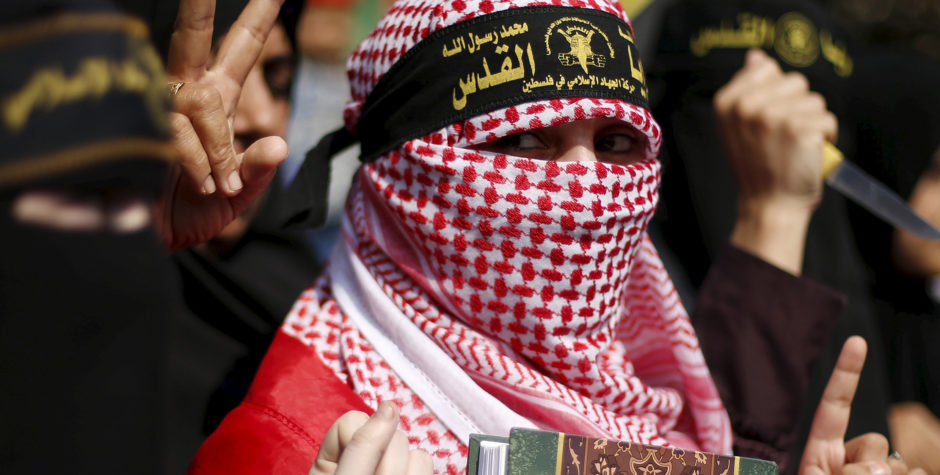Jihadist Atrocities Against Christians Spread: Al Qaeda-Affiliated Terrorist Group Al-Shabaab’s Resurgence
They asked “the villagers to produce their identification cards and if you were found to be a Christian you would be shot or slaughtered."
These recently uttered ominous words of Pastor Henry Divayo – head of the church in the town of Witu, Kenya – describe what has become a widespread and resurgent threat in East Africa – that of the radical Islamist, al-Qaeda affiliated, Somali-based al-Shabaab terrorist group.
As we warned two years ago, “[y]et another radical Islamic jihadist army – just like ISIS, the Islamic State – is ruthlessly murdering Christians, targeting them for their faith. This global and historic persecution continues.” And it continues to spread.
Our colleagues at the East African Centre for Law & Justice (EACLJ) lamented:
In the past few years, the Somalia-based terrorist group al-Shabaab carried out attacks in the counties of Mombasa, Mandera, Garissa, Wajir, Lamu, and Tana River and said it had targeted non-Muslims because of their faith. In Lamu County, al-Shabaab claimed responsibility for at least 65 deaths, with some witnesses reporting the terrorists asked the religion of victims, killing non-Muslims.
Al-Shabaab – translated “The Youth” became active just over a decade ago when it splintered off “of Somalia's now-defunct Union of Islamic Courts, which controlled Mogadishu in 2006, before being forced out by Ethiopian forces.” Since then, it has grown in size and scope while imposing strict Sharia law on the regions it has enveloped. The U.S. and the U.K. have also officially recognized al-Shabaab on their list of terrorist organizations.
Although al-Shabaab was founded in Somalia, their jihadist activities have spread to neighboring Kenya. It is believed that this particular jihadist group is targeting Kenya as revenge for their counter-terror operations in Somalia as well as finding it to be a fruitful jihadist recruiting area “around the port city of Mombasa, which has a large Muslim population.” As our affiliate in Kenya, the EACLJ, observed:
As a tactic, Al-Shabaab has waged religious war by rallying its militants to battle against the Kenyan forces who they accuse of spreading Christianity in a country in which Islam is prevalent. The Church in Kenya has immensely borne the brunt of this persecution and intolerance. The threshold of Religious persecution is the systematic mistreatment of an individual or group of individuals as a response to their religious beliefs or affiliations or lack thereof.
Now with an estimated 9,000 jihadist soldiers and a plethora of outside resources to draw upon, al-Shabaab’s radial Islamic terror activities look less and less likely to relent, especially in the rural areas which they seem to dominate. As Pastor Divayo bemoaned: "The attackers have been targeting Christians living in Lamu County, especially farmers in the interior areas where small-scale agriculture thrives." Largely unpredictable, the following nadirs demonstrate that Al-Shabaab will also target more populated venues when carrying out their religious-based executions.
We’ve been detailing al-Shabaab’s jihadist atrocities against Christians for some time.
In October 2009, pastor Ali Hussein Weheliye – the pastor of an underground church in Mogadishu, Somalia – was shot and killed as he drove home from a worship service.
On November 5, 2011, “two grenades were thrown at a church in Garissa, Kenya, killing two people and injuring five others. Churches have been vandalized and burnt, Sunday school children killed and pastors shot dead in wanton attacks by the Islamic extremist group, Al- Shabaab.”
In July 2012, “the African Inland Church (AIC) and a nearby Catholic Church” in Garissa “suffered an attack . . . when masked gunmen stormed into the Churches spraying bullets and hurling grenades. 17 people were killed and more than 50 were injured.”
On March 23, 2014 “gunmen entered the Joy in Jesus Church in Likoni, a suburb of Mombasa, and opened fire with assault rifles on Sunday worshippers, killing six individuals and injuring more than a dozen. The attack was widely interpreted as a direct attack on the Christian community,” as “some Muslim groups threatened individuals, especially those of ethnic Somali origin, who converted to Christianity.” The EACLJ further explains that “[t]he pastor now reports that many worshipers abandoned or fled from the church due to fear and trauma. The Church has endured a declining numbers of worshippers. What used to be a congregation of 350 worshippers has now been reduced to a congregation of 25 people.”
In November 2014, al-Shabaab attacked a bus in Mandera County, Kenya where 60 passengers aboard were forced to recite the Shahada (the Islamic conversion creed), and when 28 individuals – 19 men and 9 women – were unable to recite the passage, they were shot to death.
On June 15, 2014, “the terrorist organization al-Shabaab claimed responsibility for attacks that killed more than 65 people in Lamu County. An unknown number of individuals who identified themselves as Christian or who were unable to speak Somali were killed.”
On April 2, 2015, radical jihadist gunmen stormed the campus of Garissa University hunting Christians students and eventually killing 148 people. The Somali-based Islamist extremist group al-Shabab claimed responsibility, admitting to targeting Kenyan Christians.
In July 2017, “Somali-based terror group al-Shabaab killed seven Christians in a series of deadly raids in Kenya earlier this month where the Islamic radicals went door-to-door in villages looking for believers.”
On August 17, 2017, International Christian Concern detailed how “al-Shabaab militants entered Maleli village of Witu” and “reportedly killed four Christian men in Kenya's Lamu County last week, beheading three and burning alive another."
This heinous jihadist army must be stopped. Al-Shabaab’s atrocities against Christians and brutal persecution of churches in Kenya can no longer be ignored or tolerated. We must be heard.
Al-Shabaab’s actions are clearly deadly, demented, disturbing, and disgusting. We must defeat and destroy these Islamic jihadists.
At the ACLJ, and through our international affiliates – including our attorneys on the ground in Kenya – we will continue to vigilantly fight to protect religious freedom across the globe. Fight alongside us.
